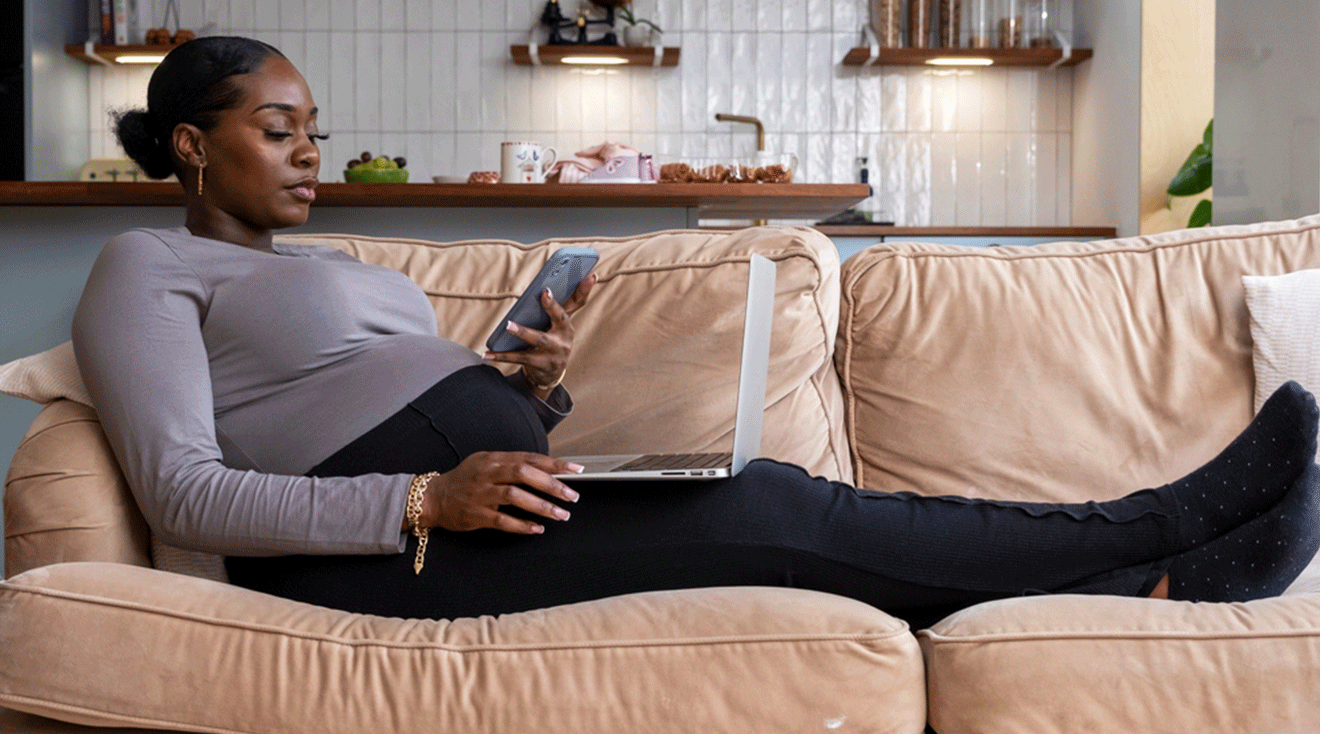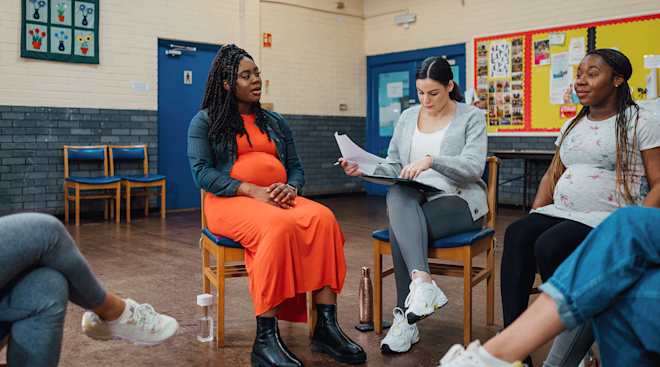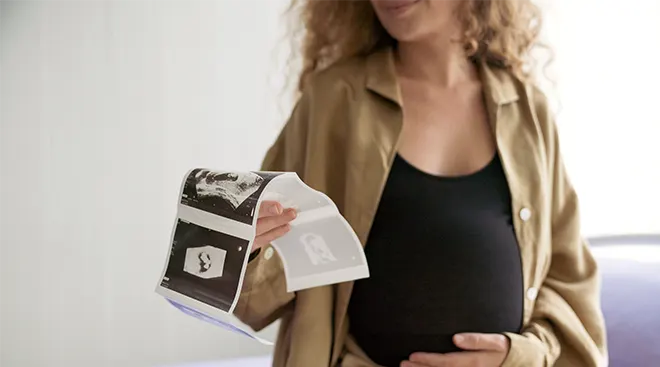How Remote Prenatal Care and Monitoring Can Close Gaps and Save Black Lives
Nearly one in five women will experience complications like hypertension or gestational diabetes during pregnancy. While many of these conditions are treatable, social factors can make getting adequate care a major obstacle. And Black women and pregnant people can be especially vulnerable for a myriad of reasons. Whether they live in a maternal care desert or they’ve experienced previous discrimination while seeking treatment, remote patient monitoring can remove some of these barriers and help close the divide. But what exactly is remote prenatal care, and how can you find it? Read on to learn more.
“Remote prenatal care brings support from your healthcare team into your day-to-day life, even outside of appointments,” explains Anish Sebastian, founder and CEO of Babyscripts, a virtual care program for managing obstetrics. It can include a mix of helpful tools, such as mobile apps, educational content and health monitoring. “It also [pitches in] if you might need extra help with things like managing stress or finding local resources, such as food delivery services or ride-sharing programs,” adds Sebastian.
“High-quality virtual care is a game-changer for women, especially those with limited access to an in-person ob-gyn,” says Marta Bralic Kerns, founder and CEO of Pomelo Care, a virtual maternity care program. “We fill in gaps, answer questions day or night and provide meaningful care throughout pregnancy and post-pregnancy.”
Moreover, remote prenatal care can offer essential support for Black moms and those in areas without nearby maternity services. Black women face unique challenges, from health conditions like high blood pressure and diabetes to barriers in accessing care, which can sometimes lead to missed prenatal visits. These issues can increase the risk of preterm birth, low birthweight and maternal complications. The good news is that technology and remote monitoring can help close this gap by providing tools that bring care directly to an at-risk mom-to-be. “This makes it easier to monitor important health signs and get personalized support at home,” says Sebastian.
Remote care also makes a big difference in areas with limited healthcare options—where getting prenatal or specialized care is especially difficult. For moms in these maternity care deserts, remote care offerings provide a way for doctors to track a mom-to-be’s health and ensure they’re getting the right care, even if regular in-person visits are hard to manage.
Finally, remote monitoring can help make healthcare more fair and accurate. “By collecting health information directly from your home, these tools reduce the chances for human bias that might affect your care,” says Sebastian. Studies show that blood pressure readings taken at home can sometimes be more accurate than those taken at the doctor’s office, which can be influenced by outside stress, he adds. Thus doctors can get a clearer, more consistent view of a patient’s health, helping them provide more effective, customized care.
Moreover, it’s entirely plausible that, on a broader scale, remote care could help reduce systemic bias and racism in the healthcare system.
While remote monitoring and support can be incredibly helpful, it can’t entirely replace in-person prenatal care. It’s meant to be supplemental. For starters, not everyone has WiFi at home or devices they can communicate on. Language can also be a barrier. Finally, Sebastian points out that remote care can be an expensive endeavor for doctor’s offices and healthcare companies. “Many health systems may struggle to afford the upfront costs needed to offer remote care,” he says. “Thankfully, more insurance companies and state programs are beginning to cover remote maternal health solutions, which help get these tools into the hands of more moms-to-be,” he adds.
Deidre W., a mom of three in New Orleans, entered her third pregnancy with a history of chronic hypertension, a condition that disproportionately affects Black women. This time, however, her blood pressure levels were severe.
At 21 weeks, Deidre’s doctor decided she needed more regular monitoring via Babyscripts’ virtual platform. When her BP levels started to increase dramatically, accompanied by concerning symptoms at 37 weeks, she was prompted to seek immediate medical attention. She went to Labor & Delivery with superimposed preeclampsia with severe features. After being given medication to manage her condition, she delivered a healthy baby girl. Deidre and her care team continued to keep careful track of her blood pressure and symptoms remotely during the postpartum period. When her readings spiked again, her doctor was notified and immediately sent her to the ER, where it was confirmed that she had suffered a mild stroke. Deirdre was able to get the help she needed. Remote monitoring may have saved her life.
The reality is, though, that remote monitoring isn’t as mainstream as it could be. And this is to the detriment of women’s lives. “Without enough coverage and support from insurance, these tools aren’t as widely available as they could be,” says Sebastian. “Showing policymakers how valuable these solutions are can help improve access to quality care for moms everywhere.”
Please note: The Bump and the materials and information it contains are not intended to, and do not constitute, medical or other health advice or diagnosis and should not be used as such. You should always consult with a qualified physician or health professional about your specific circumstances.
Plus, more from The Bump:
Anish Sebastian is the founder and CEO of Babyscripts, the leading virtual care program for managing obstetrics.
Marta Bralic Kerns is the founder and CEO of Pomelo Care, a virtual maternity care program. Prior to Pomelo, she led business development, strategic partnerships and new product initiatives at Flatiron Health, and worked on healthcare payment reform at McKinsey. She holds a bachelor of arts degree from Harvard University.
International Scholarly Research Notices, Racial/Ethnic Variability in Hypertension Prevalence and Risk Factors in National Health Interview Survey, September 2012
Learn how we ensure the accuracy of our content through our editorial and medical review process.
Navigate forward to interact with the calendar and select a date. Press the question mark key to get the keyboard shortcuts for changing dates.





















































